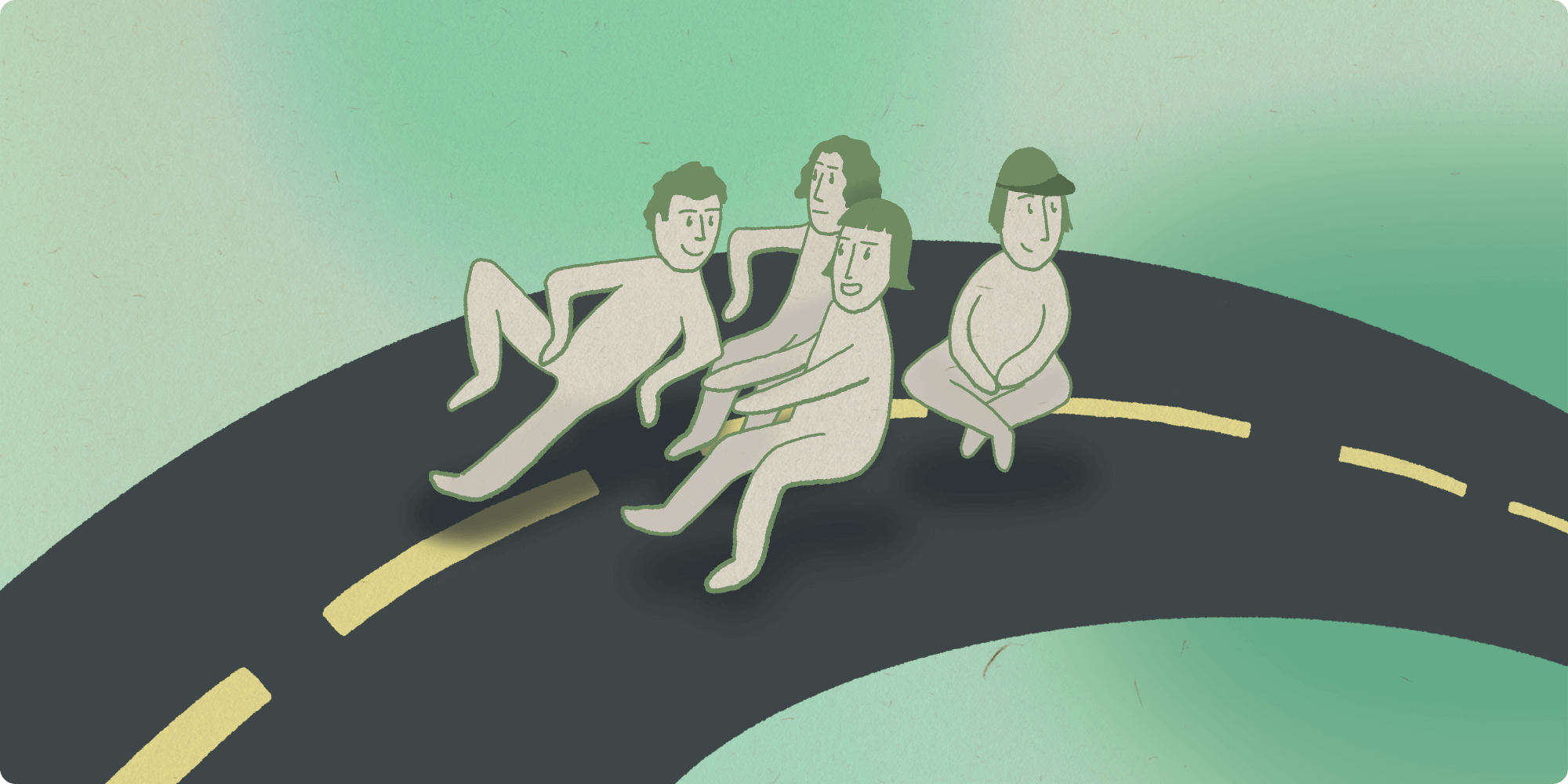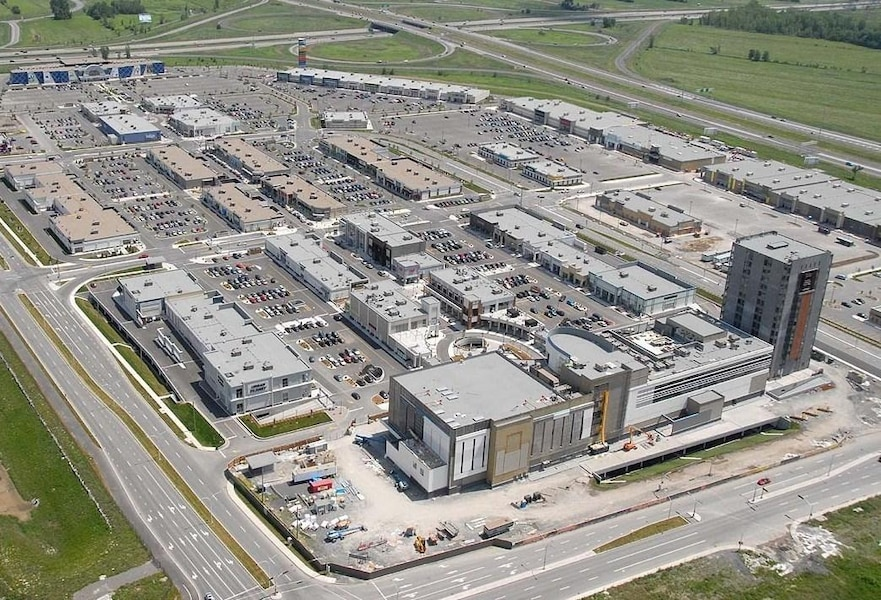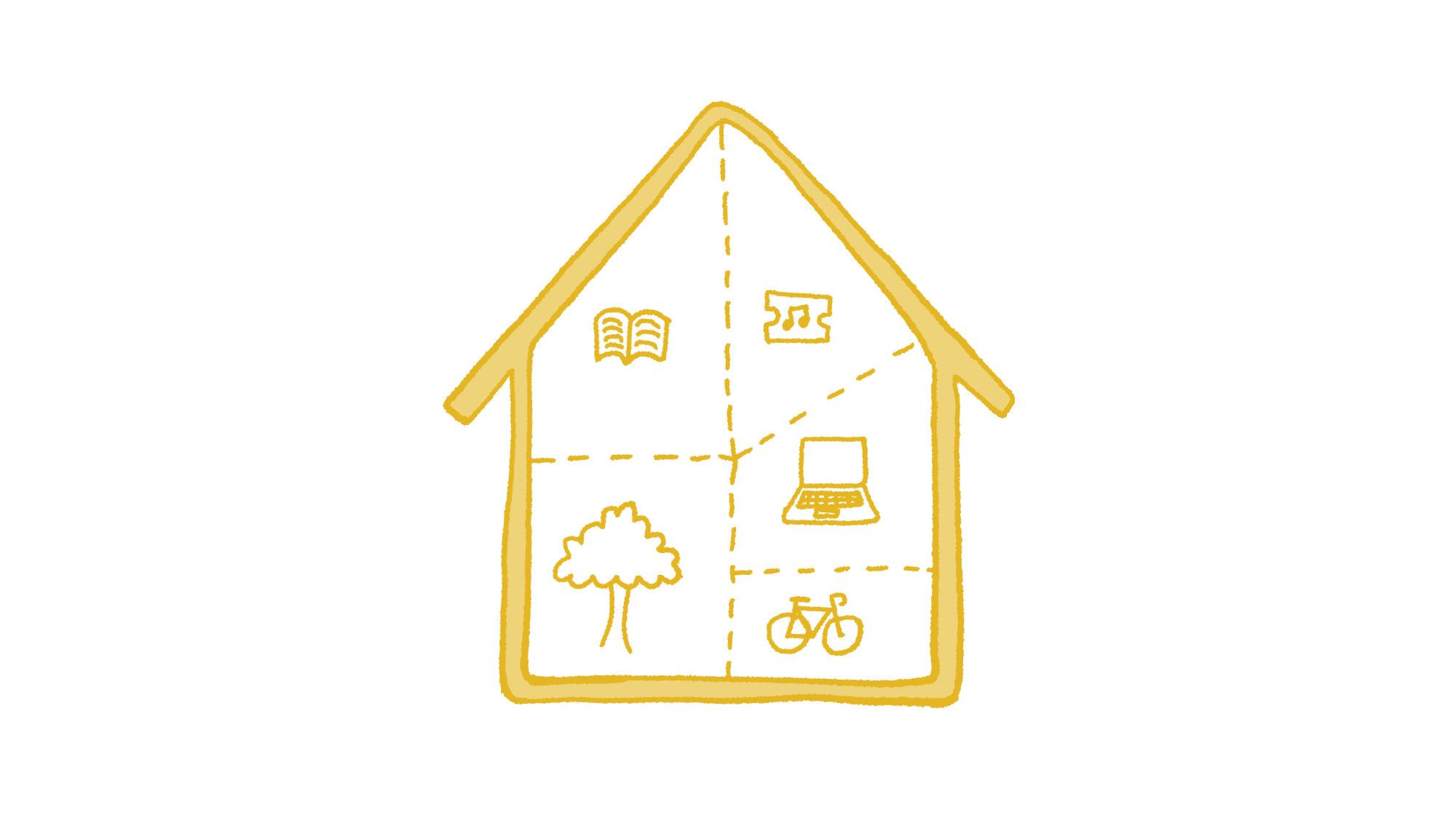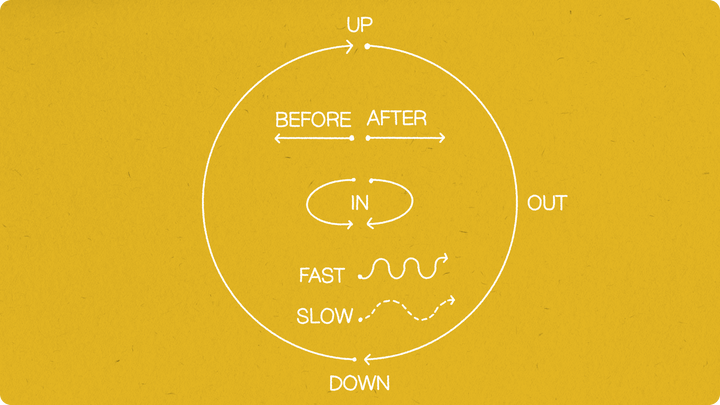Questioning the Car-First City
What Do We Lose When We Let Cars Win?

The other day I was walking up my street towards my home. An originally pretty wide street that had been rearranged over the years to accommodate a protected bike path. This made me notice just how much space the street is actually taking. A sidewalk, a two-way bike-path separated from cars by a median strip, then one full row of parked cars, a one-way path for cars to drive on and a whole other row of parked cars before the other sidewalk. Walking down one of the sidewalks, I couldn’t even see someone walking up the other sidewalk.
Then I imagined how much space that would represent if the cars weren’t there. The sheer surface area of the street would have such immense community-building potential, I thought. Every house could appropriate its portion of the street and have, say, an outdoors seating area, right there next to their neighbours. People could easily sell some furniture, play some music, enjoy the sun, tend to a small garden. I can’t begin to imagine how the neighbourhood vibe could change with something like this. So much space dedicated to big obtrusive objects —the cars— and so little space for life, community, connection.
If we designed home space to match how we design public space. pic.twitter.com/sFNuA7oCWX
— kyle ashley (@theBicyKyle) July 4, 2020
How can we possibly address the environmental debate if we don't question the consumerist model our societies depend on. We've gotten used to globalisation, we expect packages that come from Hong Kong to land on our front porch within 2 weeks max, we expect cheap direct overseas flights at any hour of any day, we expect goods manufactured across the globe to come at a cheaper retail price than goods made locally. We've gotten used to extreme convenience.
We've centred the design of our cities around the existence of the car. It's normal to jump in the car and drive to a nearby store and park in the adjacent lot. A lot which takes up a ridiculous amount of space and which makes accessing it by foot even longer. We've created shopping centres —basically small towns at this point— that accommodate cars more than pedestrians or bicycles. The majority of the square footage is taken up by parking lots, making the experience of going from the arts & crafts store to the furniture store an unsafe 20 minute walk.

We keep hearing "ban cars!", but what would we do about the car industry? It's an enormous market and people are used to its comforts and accessibility. The cities and especially suburbs are built around it. How can we detach from car-centred suburban life? By taxing it more? Would people actually stop buying cars if they were more expensive? Would people instead just resort to get into more debt because they have no other way of getting around? (And because loaning companies would take that as an opportunity to expand their market.) Does this shift start with an investment in installations coupled with an expansion of public transportation? I believe we have to make the alternatives more attractive, more easily available, and make them become the easy choice before we start removing the bad guy.
People are used to buying a house located a 45 minute drive away from the city center where they work and then driving across traffic and parking in an overpriced underground lot. If we extended public transport coverage, would people actually re-build their commuting habits around trains to get to work? Do we have to make housing more accessible inside the cities themselves? (i.e small footprint living, but not everyone's ready for that, and not all households can live that way) Do we have to encourage people to live and work in the same area?
There are many possibilities here and it also brings up many more issues to tackle. Like gentrification, access to housing for first-time buyers, populating rural areas, etc.
It even brings up the issue of having to be present in an office at all. Remote work offers a part of the solution in making cities more car-free. With the recent global crisis forcing people to stay home unless necessary, many companies have ably adapted to full-time remote work. In most cases, the results are great! Managers have finally been proven that productivity depends on your employee, not on the context of the office. Accountability depends on your employee, not on physical presence. Quality of work is delivered wherever your employee decides to be, and whenever your employee decides is a good time for them to work. We've finally proven that a good work culture needs trust. The pandemic has forced us to prove it and it couldn't have happened at a better time.
Due to the lockdowns, we've seen our city centres emptied of their usual traffic. I personally couldn't believe it when I saw big boulevards in Montreal like René-Lévesque, or even Saint-Laurent with only a handful of cars on a Monday at noon. This never happens. I really hope we've all learned that this can work, and that the benefits are real. Less traffic, less pollution, less expenses for the individual (gas, parking, reparation) and for the city (construction, maintenance). More space for pedestrians —Montreal has made multiple high-traffic streets completely car-less since the spring of 2020, making room on Bernard for restaurants to have larger outdoor seating areas allowing for adequate distancing between the tables, making room on Waverly for neighbours to hang out and let their kids play in the street without having to look out for cars, making room on Sainte-Catherine for people to honour social-distancing in the stores' line-ups—, and more space for bicycles. Hopefully drivers (who also tend to be pedestrians and cyclists ☝️) will have learned from experiencing this temporary alternate way of navigating the city.
Further reading
- Cars take up way too much space in cities. New technology could change that. by Brad Plumer for Vox
- See Just How Much Of A City’s Land Is Used For Parking Spaces by Adele Peters for Fast Company
- What I Mean When I Say 'Ban Cars' by Doug Gordon for Jalopnik



